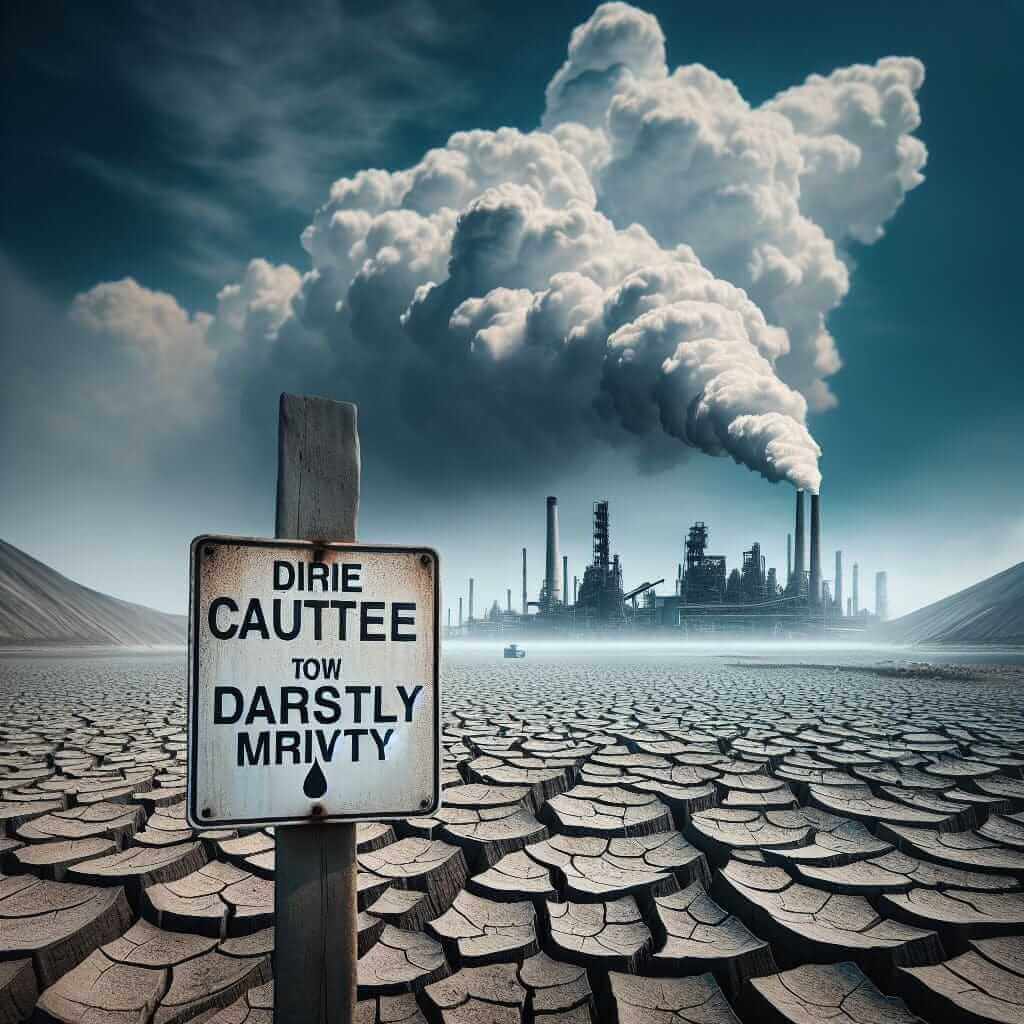Climate change has become an all-encompassing issue affecting various facets of our lives, particularly water resources. Given its critical relevance, it is a frequent topic in IELTS Writing Task 2. This article will delve into the impacts of climate change on water resources, offering an IELTS-style writing task, a sample essay, and useful vocabulary.
Understanding the Impact of Climate Change on Water Resources
Climate change’s effect on water resources is profound and multifaceted. Rising temperatures, altering precipitation patterns, increasing the frequency of extreme weather events, and glacier melting are some of the notable consequences. These changes can lead to water scarcity, quality degradation, and ecosystem disruption.

Common IELTS Task 2 Prompts on This Topic
- “Climate change has a significant impact on global water resources. Discuss the causes and effects of this issue and suggest possible solutions.”
- “To what extent do you agree or disagree with the statement that climate change is the most critical challenge to water resources?”
- “Government policies are crucial in mitigating the adverse effects of climate change on water resources. Discuss the extent to which you agree or disagree.”
Chosen Prompt for Analysis and Essay
Prompt:
“Climate change has a significant impact on global water resources. Discuss the causes and effects of this issue and suggest possible solutions.”
Analyzing the Prompt
- Topic: The impact of climate change on water resources.
- Task: Discuss causes, effects, and suggest solutions.
- Keywords: Climate change, water resources, causes, impacts, solutions.
Sample Essay
Climate change is an escalating global issue with far-reaching geographical, socio-economic, and environmental impacts. One of the most pressing concerns is its effect on water resources. This essay will discuss the primary causes and significant impacts of climate change on water resources before proposing potential solutions to address this challenge.
First and foremost, climate change primarily stem from human activities such as burning fossil fuels, deforestation, and industrial processes, which release vast amounts of greenhouse gases into the atmosphere. This escalation in greenhouse gases leads to global warming, which disrupts weather patterns and accelerates glacier melting. Consequently, regions that once experienced regular rainfall may now face prolonged droughts, while others may suffer from severe flooding.
The impacts of climate change on water resources are multifaceted. One significant effect is water scarcity. As global temperatures rise, evaporation rates increase, leading to the reduction of surface and groundwater supplies. Additionally, altered precipitation patterns can result in periods of intense rainfall followed by prolonged dry spells, disrupting the natural replenishment of freshwater sources. Furthermore, the melting of glaciers, which serve as vital water reservoirs for many regions, is likely to reduce the long-term availability of water, posing a threat to agricultural productivity and potable water supplies.
To mitigate these adverse effects, several strategies can be employed. Firstly, it is crucial to adopt sustainable water management practices such as rainwater harvesting, wastewater recycling, and the use of efficient irrigation techniques. These practices can help to conserve water and ensure that it is utilized more efficiently. Secondly, it is imperative for governments to implement stringent policies aimed at reducing greenhouse gas emissions. This can be achieved through the promotion of renewable energy sources, enhancement of public transportation systems, and enforcement of regulations on industrial emissions. Lastly, reforestation and conservation efforts should be intensified to restore and protect natural ecosystems, which play a vital role in regulating the water cycle and maintaining water quality.
In conclusion, climate change poses a significant threat to global water resources through phenomena such as water scarcity and ecosystem disruption. Addressing these challenges requires comprehensive actions ranging from sustainable water management practices to robust governmental policies aimed at mitigating climate change. By implementing these measures, we can work towards ensuring a sustainable and secure water future for generations to come.
Word count: 353 words
Key Considerations When Writing
- Structure: Introduction, Body Paragraphs (discussing causes, effects, and solutions), Conclusion.
- Coherence and Cohesion: Use linking words to connect ideas (e.g., consequently, furthermore, additionally).
- Task Response: Fully address each aspect of the prompt (causes, effects, solutions).
Essential Vocabulary
- Greenhouse gases /ˈɡriːnˌhaʊs ˌɡæsɪz/ (n.) – Gases that trap heat in the atmosphere, leading to global warming.
- Evaporation /ɪˌvæpəˈreɪʃən/ (n.) – The process of turning liquid water into vapor.
- Replenishment /rɪˈplɛnɪʃmənt/ (n.) – The process of refilling or restoring.
- Irrigation /ˌɪrɪˈɡeɪʃən/ (n.) – The artificial application of water to land for agricultural purposes.
- Reforestation /rɪˌfɒrɪˈsteɪʃən/ (n.) – The process of replanting trees in deforested areas.
Conclusion
In essence, the topic of climate change’s impact on water resources is highly relevant and complex, making it a frequent subject in the IELTS Writing Task 2. By understanding the causes, effects, and possible solutions, learners can craft well-rounded essays. Additionally, familiarizing oneself with key vocabulary and writing strategies is crucial for achieving high band scores. Regular practice with related prompts will enhance proficiency and confidence in dealing with this critical issue.
For further reading, consider exploring related resources: